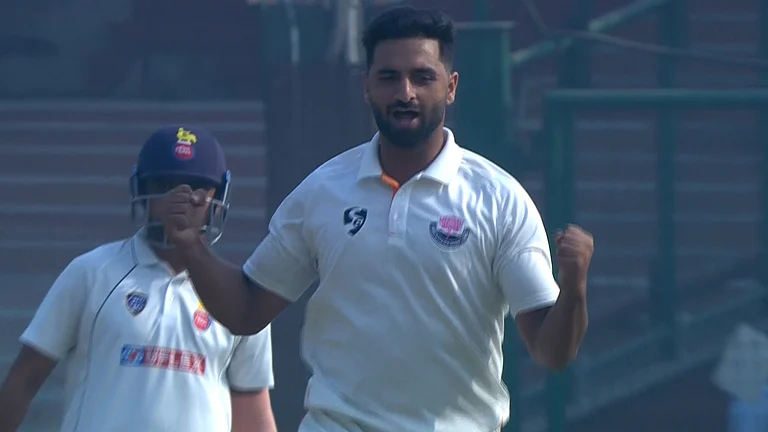Precipitations weave moments, maverick rains of the erstwhile Calcutta for a 1985-born like me hold grudges that are permanent; the smudged eyes of the rainy evening captured in the gullible terraces of Calcutta promised fragile drops of love. I do not recall whether the memories of the rain had any smell- odour, fragrance- what was it I do not have an exact idea. The rain-soaked early Junes were the day when I eagerly awaited my birthday. In one of the poshest localities of the East, our two-room rented flat, shoddy, wooden windows, dampened sills, and my fairytale turret all waited for the monsoon to return with great gusto. There was a school just opposite our building. And during heavy monsoons, mother used to look for the known faces jostling to come out into the rains, rickety children in Duckbag raincoats, carrying sap-green schoolbags, looking furtively yet longingly at the local pickle-seller. Tangy, tasty mango pickle gifted them a toxic delight! The starfruit pickle was almost an enchantment, the children felt. Their faces looked brighter even in the heavy downpour; their school monograms stained with pickle, letters acting supersmart in between. Sometimes, some of their mothers pressed the calling bell of our ground-floor flat (Now I have ceramic and bronze windchimes that dangle in the rain, flirting with the cumulo-nimbus clouds in the distance), in the hope of enjoying a temporary shelter in our drawing-room. They were strangers. But all mothers had an inherent space and language of their own, I saw. A space that is beyond the ticking of the fidgety wallclock!
When I missed my school on declared rainy days, I acted precociously and listened to their conversation- some spoke of the benign mother-in-law, while some about their daily chores and bedroom adventures. Those were the extreme moments when my mother insisted that I go out and play. She used to go on to the verandah, pick up the dry clothes immediately, caress the bulging rubber plant leaves and the sprawling bougainvillaea, wait for a few seconds, and then come back. I loved the minute droplets of rain clinging to the vermillioned parting of her hair, and to the border of her half-sleeved blouse. She loved red, and she loved the rains. She smelt of sweat, turmeric paste, and rains all clubbed into one. The sandhya arati and offering homage to the Gods after the sunset were more prolific during those times. I enjoyed two parallel worlds- one, where the rains infringed on the shrivelled earth, diluting the anger of the Gulmohur tree next to our building, and another world where the sight and sound of conch shells, Gods, and Goddesses decked in crimson dresses invoked a sense of wild bewilderment in me. Mother instructed me to go and get hold of Mental Math, something dreadful after the rains! Maybe the Gods also smirked at my condition. After all, some of my friends continued their gully cricket in the rains, and I had to study.
Mother’s gaze could read through a long distance-the port of her vacant eyes filled with the monsoon rains as father’s poorly-maintained navy blue Ambassador took a turn across the road around 7 or 7:30 in the late evening. The hired driver knew the haste, my father failed to fathom the monsoon anxiety. Those were the times when power cuts were common in Calcutta. ‘Loadshedding’ as we used to say. Almost on all the rainy, waterlogged days, the State Electricity Board received the umpteenth number of calls, with customers mouthing obscenities at their inefficiency. On many rainy nights, my father used to take out his Eveready torch, go out and check the meter box of the building. Whatever engineering skills he had were not limited only to his official duty. I could visualize a prophetic tone in his voice, and a forlorn look of the government servant in his eyes, as he used to say in exasperation, “I think it is a major power fault, the load-shedding will continue.” Mother seemed happier when he was at home, humming tunes that she often wrote in the pages of her diary. She was a trained vocalist, and the veteran singer late Smt. Sunanda Pattanayak was her classical guru. As she used to make arrangements for a monsoon-special khichdi for us, she kept on singing barsat ghor ghor badara, or sawan ke badara aaye. The intensity of her song coupled with the heavy drizzle outside mesmerized me. It was like a heavenly synchronization going on somewhere in a small ground-floor flat in Calcutta. My father enjoyed his cup of late evening tea as my mother went on singing- one, two, three, four songs, exchanging love-filled glances with my father. Sometimes, when our relatives visited us during the monsoons, she also sang in close accompaniment to the Tanpura and the harmonium. Initially, when I was in school, she used to teach me raagas, taals, notes, high-pitch, low-pitch sounds and the theories of music. She taught my sister too, although, by the time she was born, we shifted to another locality where the rains were lackadaisical and lacked the earthy spirit.
Calcutta rains were not the same throughout, I feel. Geography books provided insufficient knowledge, history books waxed eloquent on ancient myths and how to propitiate rain gods, and science fumbled with evaporation and condensation. The only solace perhaps that I found was in literature and in Tagore’s songs. I was an heirloom to my grandfather’s mahogany armchair, a pasha board game made of an elephant trunk, and dilapidated transistor radio (those categories fall under the ubiquitous nostalgia-laden meme ingredients now!). Sometimes the All India Radio was a sweet saviour- on rainy nights we used to sit and have our monsoon-special Indian dinner, as Debabrata Biswas’ Rabindrasangeet filled the small rooms with nostalgia. Or, when the nightingale herself regaled us with her ‘brishti, brishti, brishti’, a famous song from the film Sonar Khancha starring Uttam Kumar, the god of the Bengali tinsel town. Often my parents would burst into duets and go on singing Rabindrasangeet till late night --- Shrabana barishane, or Mon mor megher sangi. As I was growing up, the rains somehow became synonymous with Tagore’s songs. After so many years, now when it rains outside the classroom, I look at my students sitting comfortably inside an air-conditioned time machine. Most often, the rains on the lush green grass outside have no enticing capacity for them. They do not believe in nostalgia. While I propel my way through time to reach the lines from Gitanjali, the cumulo-nimbus clouds take me back to my two-roomed ground-floor flat.
My sister is also a teacher now. She is fond of rainy days and drizzle-kissed evenings. My mother is suffering from several post-stroke ailments for the last two months. She cannot sing anymore. Relatives come and go, our plight is sprinkled in between the stories of affluent cousins, exotic foreign locales, and awesome destination weddings. The black and white reeds of mother’s harmonium feign happiness. Instead of the sprawling bougainvillea on her balcony, I now see the dialysis channel jutting out of her body. Her hair is cropped, she has no vermillion on the parting of her hair now, her teeth blackened by the doses of the iron tablet which she chews instead of swallowing. With my father trying to feed her half-boiled egg whites and a spoonful of bland curries, the rains in Kolkata make me realize what ‘excruciating’ means. As I try to draw the blinds in her room, she makes a faint commenting her supine position- “If I can walk again, I will go to the rooftop and get drenched in the rain.”

















